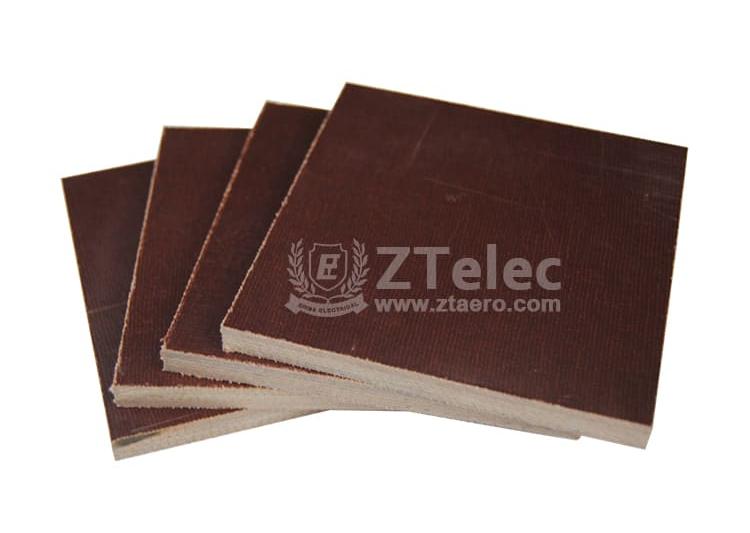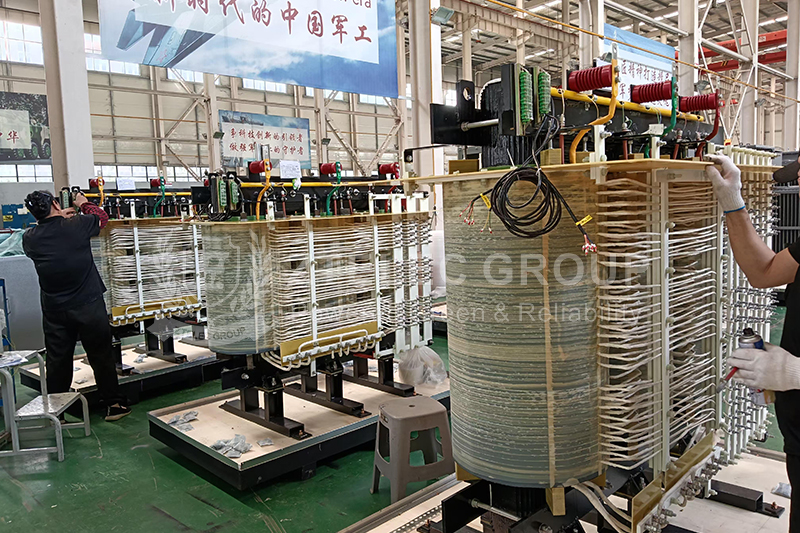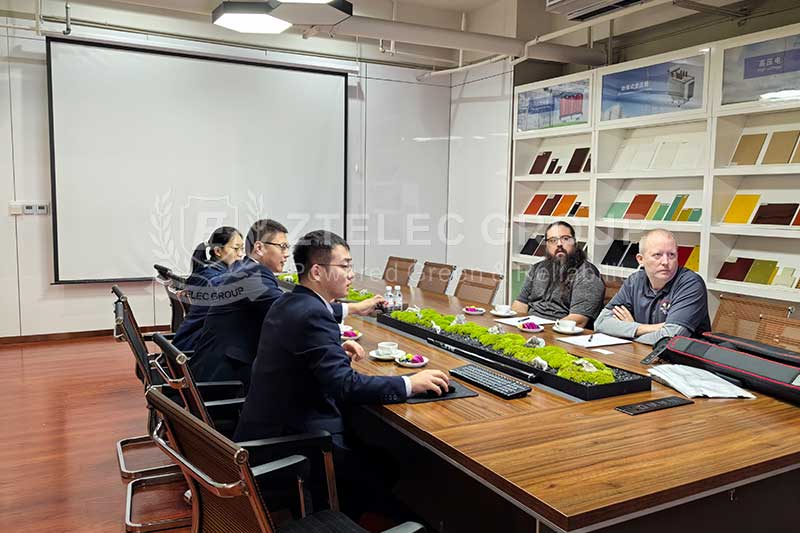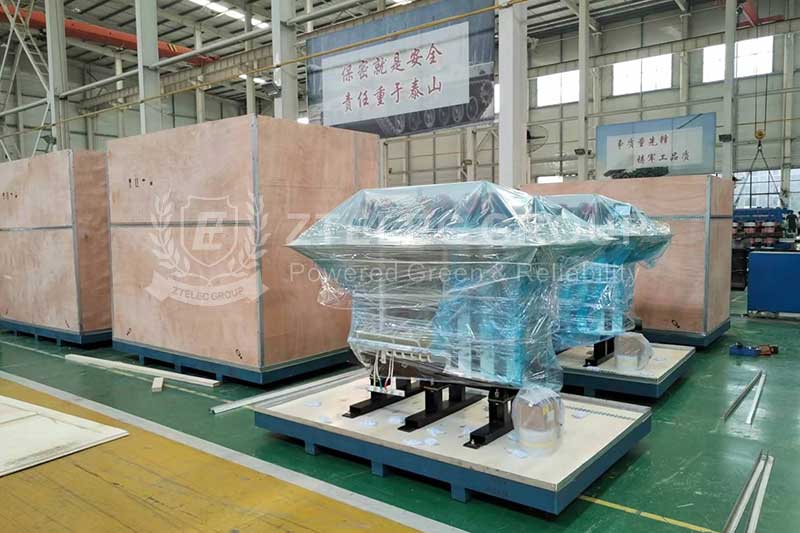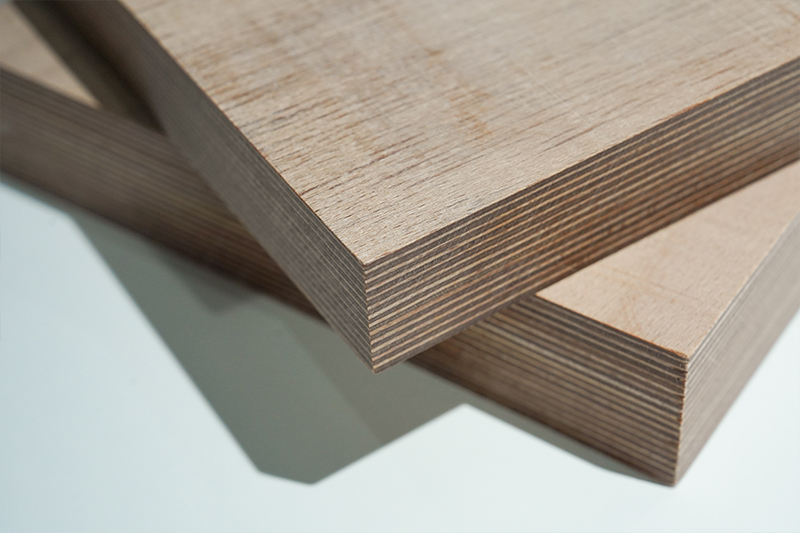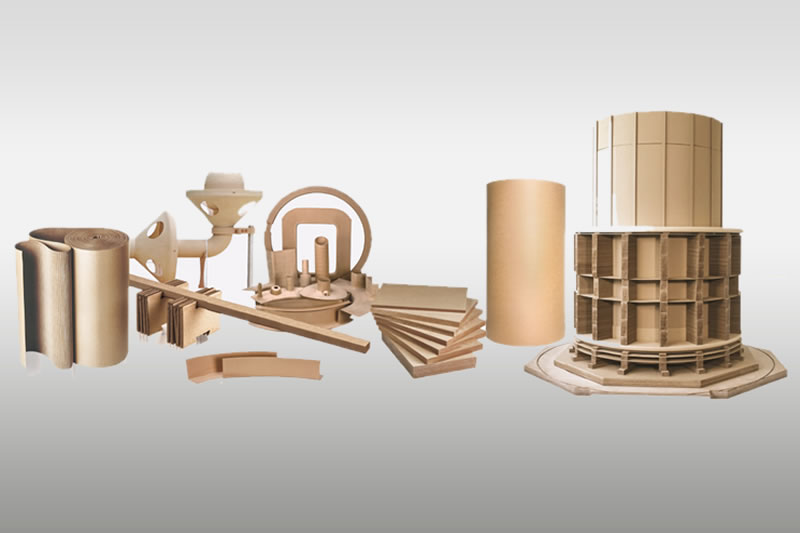product description
1. Phenolic Cotton Cloth Sheet Material Details
Grade: 3205. (Type: Cotton Based Laminates)
Description:
Phenolic Cotton cloth Laminate sheet, often referred to as "phenolic cotton" or "phenolic fabric laminate," is a type of composite material made by impregnating layers of cotton fabric with a phenolic resin and then curing the material under heat and pressure. This process creates a strong, durable, and versatile material with various applications.
Comments: A high strength Class B rigid insulation with good electrical property and mechanical property. It is wear-resisting and applies to wear-resisting and insulating parts of mechanical, motor and electrical equipments, such as gear machining, mold machining.
Specifications: IEC 60893-3:2003.
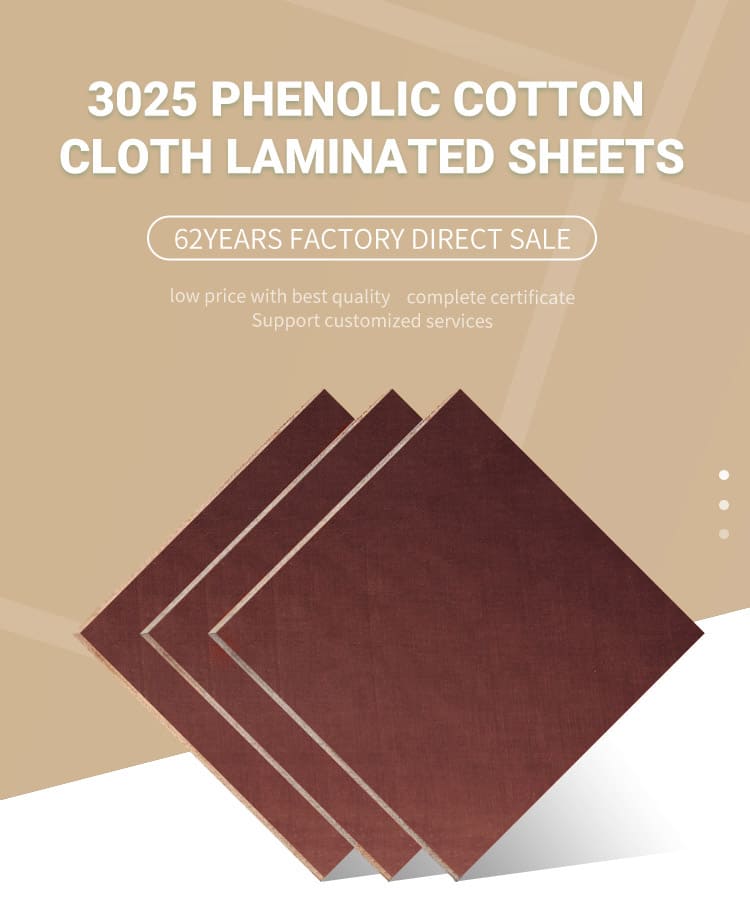
Body Colour: Brown
Cover Colour: Brown
Standard Finish:
Size: 1000mm*2000mm/1220mm*2440mm,
Thickness: 0.5-100.0mm
0.5mm; 0.6mm; 0.8mm; 1.0mm; 1.2mm; 1.5mm; 1.6mm; 1.8mm; 2.0mm; 2.2mm; 2.5mm; 3.0mm; 3.5mm; 4.0mm; 4.5mm; 5.0mm; 5.5mm; 6.0 mm; 7.0 mm; 8.0 mm; 10.0 mm; 12.0 mm; 14.0 mm; 15.0 mm; 16.0 mm; 18.0 mm; 20.0 mm; 25.0 mm; 30.0 mm; 35.0 mm; 40.0 mm; 45.0 mm; 50.0 mm; 65 mm; 100mm
Parameters can be changed according to customer requirements and agreed with the manufacturer.
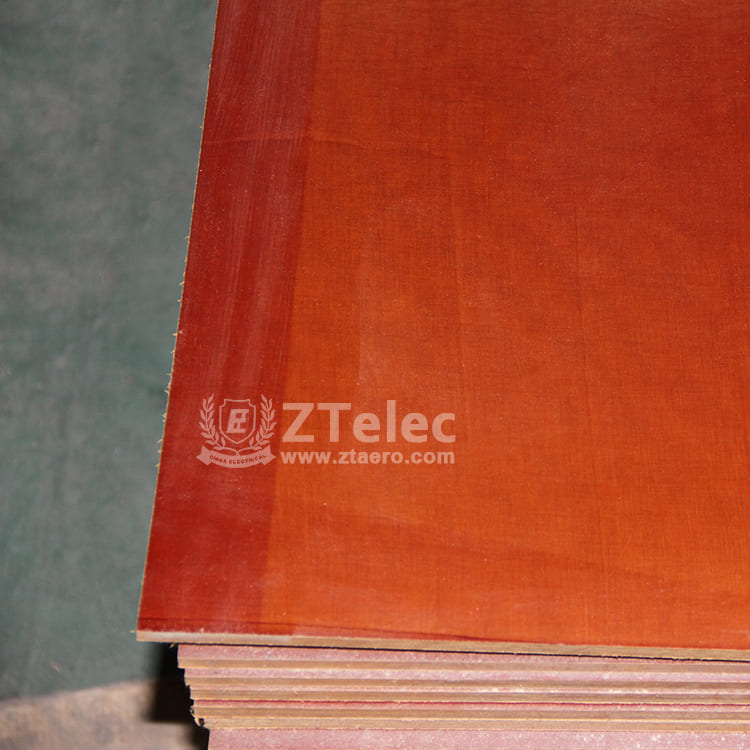
2. Advantages of phenolic cotton sheets:
Permissible long-term operating temperature: -65°C to +105°С.
Very good mechanical and thermal properties,
Continuous operating temperature up to 120°C,
Approved for use in oil and air,
Low coefficient of friction,
High creep resistance,
vibration absorption properties,
Easy to machine,
Electrical insulation properties
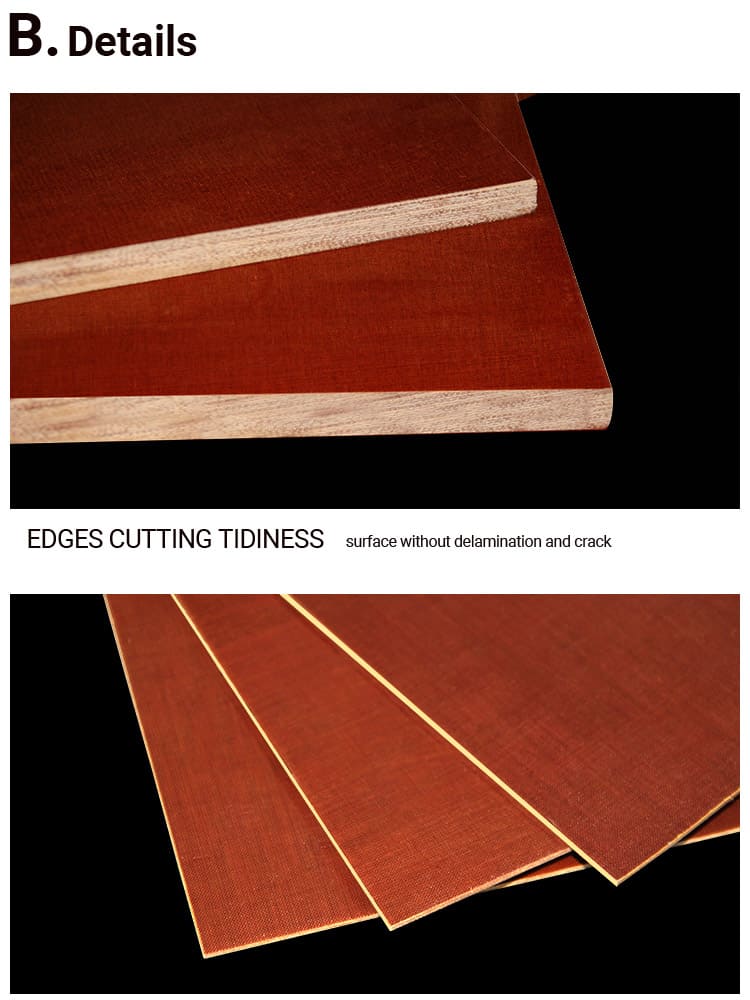
Types of phenolic epoxy cotton cloth/textolite sheet
Type A phenolic cotton cloth sheet: improves electrical properties and is mostly used as insulation material.
Type B phenolic cotton cloth sheet: The same as type A, but with improved mechanical properties and mostly used as building materials.
3.Typical Applications
Wear Resistant Components
Cryogenic Resistance Components
Insulating Handles
Punched Components
Gasket Manufacture
Bolt Insulation
Conveyor Wheels
Bolts and Screws
Seal Rings
Piston Rings
Rotor Blades (compressor)
Gears - Fine Tooth
General Properties
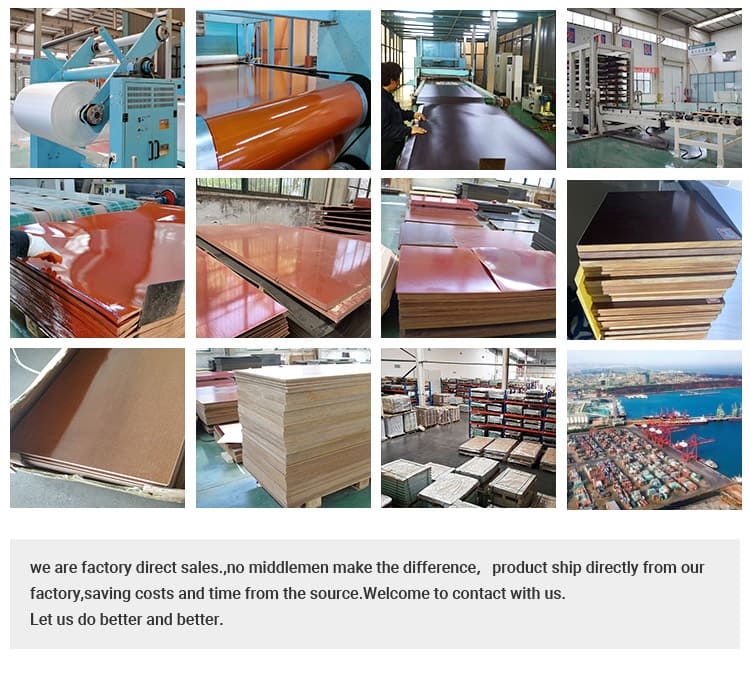
Property Unit of measure Typical Value
Density gc/m3 1.4-1.6
Water Absorption (5mm) mg 201-540
4.Electrical Properties
Property Unit of measure Typical Value
Electrical Strength (90℃ Oil) ⊥ kV/mm ≥5.1
Electrical Strength (90℃ Oil) ∥ kV ≥20
Insulation Resistance After Immersion Ω ≥1.0*107
Power Frequency Permittivity - ≤5.5
Proof Tracking Index - ≥100
Mechanical Properties
Property Unit of measure Typical Value
Benging Strength MPa ≥100
Tensile Strength MPa ≥80
Shear Strength ∥ MPa ≥25
Bond Strength N ≥3200
Impact Strength ∥ kJ/m2 ≥7.8
Thermal Properties
Property Unit of measure Typical Value
Thermal Charactersitices ℃ 120
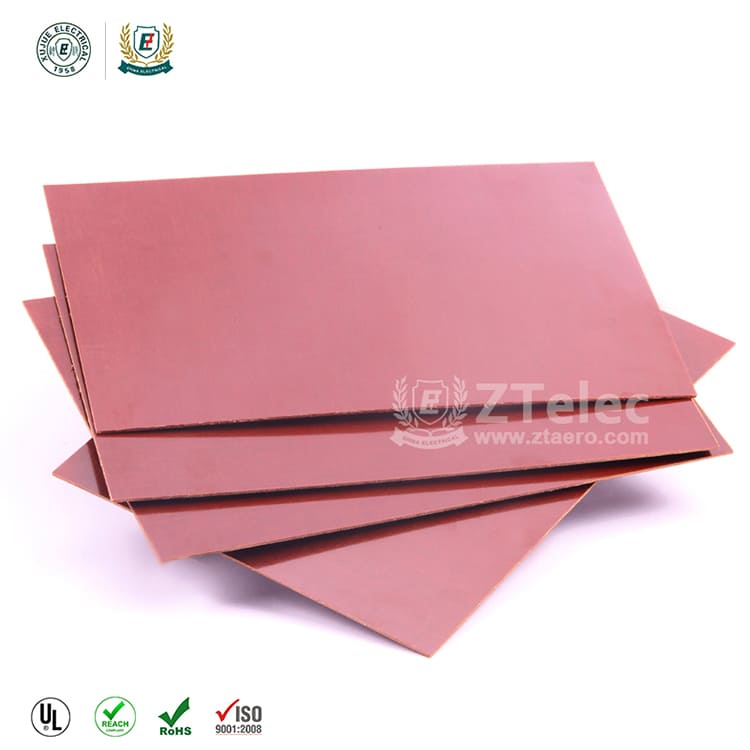
Disclaimer: The above values are based upon routine test data and do not form the basis of a supply contract. These
products may be used in a diverse range of applications and whilst every effort is made to ensure the information in this
data sheet is accurate, it must be stressed that it is the user's responsibility to ensure suitability for the intended end use.
Stroage: Wrapped with packaging film and packed in pallet; horizontally placeed in dry and clean room at room temperature; keep it away from moisture and fire. The storage period is 12 months.

